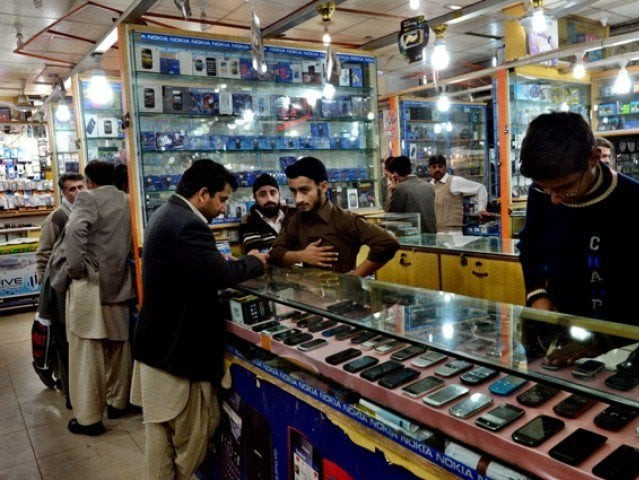What happens to your smartphone once stolen?
High-end handsets are of little value once locked by company or CPLC

PHOTO: AFP
A discussion on smartphones – or any phone for that matter – would not be complete without a mention of theft and muggings.
The case of Karachi is peculiar as residents of this mega city are robbed of their phones, and other belongings, on a daily basis. While the number of such instances has gone down, they continue just the same.
Around 32,000 cell phones were stolen or snatched in 2015, according to Citizens-Police Liaison Committee (CPLC) Chief Zubair Habib.
Studying Pakistan’s growing obsession with smartphones
But have you ever wondered what happens to your phone once it is stolen?
The first thing thieves do after stealing/snatching a cellphone is to turn it off and remove the SIM/SIMs. The next attempt is to sell it as soon as possible, before it is locked by the owner.
“Once a phone is reported as being stolen, the CPLC puts the handset under surveillance, using its unique 15-digit International Mobile Equipment Identity (IMEI) number to trace it in case if it is used again,” explained a shopkeeper dealing in used cell phones.
“As soon as a new SIM is inserted into the stole handset and it connects to a mobile tower, it is traced,” he said, adding that in case if a phone is not traced in a week’s time, the CPLC blocks the handset using the same IMEI number.
Despite the immediate measures taken above, one cannot prevent precious personal data from falling into the wrong hands.
To post or not to post: Defiant Pakistani teens’ growing dilemma
Another mobile shop owner revealed that stolen phones, especially the high-end ones that enable users to lock or wipe data remotely, are of no or little use to these snatchers and sell for peanuts. “Phones like iPhones or Samsung Galaxy Note are of little value once they are locked by the companies and CPLC,” he added.
For example, you can lock your iPhones remotely by simply logging on to the iCloud using the Apple ID and password used to set up the phone. Other mobile phone companies also offer similar security features.
Although it is relatively easy to breach security features of some android devices, there are very few people who actually take the risk of unlocking them.
Smartphones to replace cards at bank machines
“In the last two years, pressure from law enforcement agencies; especially Rangers, has increased and people have been arrested for dealing in stolen phones,” said another shopkeeper
Commenting on what ultimately happened to such phones, he said people running small mobile repair shops are the ones who usually buy such ‘tainted’ devices. “They buy it from snatchers for as low as Rs500.”
“Once bought, they remove parts of the phone including microphone, speakers and batteries. Whatever is left afterwards is used to repair other damaged phones,” he said.
THE WRITER IS A STAFF CORRESPONDENT
Published in The Express Tribune, March 7th, 2016.
Like Business on Facebook, follow @TribuneBiz on Twitter to stay informed and join in the conversation.


















COMMENTS
Comments are moderated and generally will be posted if they are on-topic and not abusive.
For more information, please see our Comments FAQ